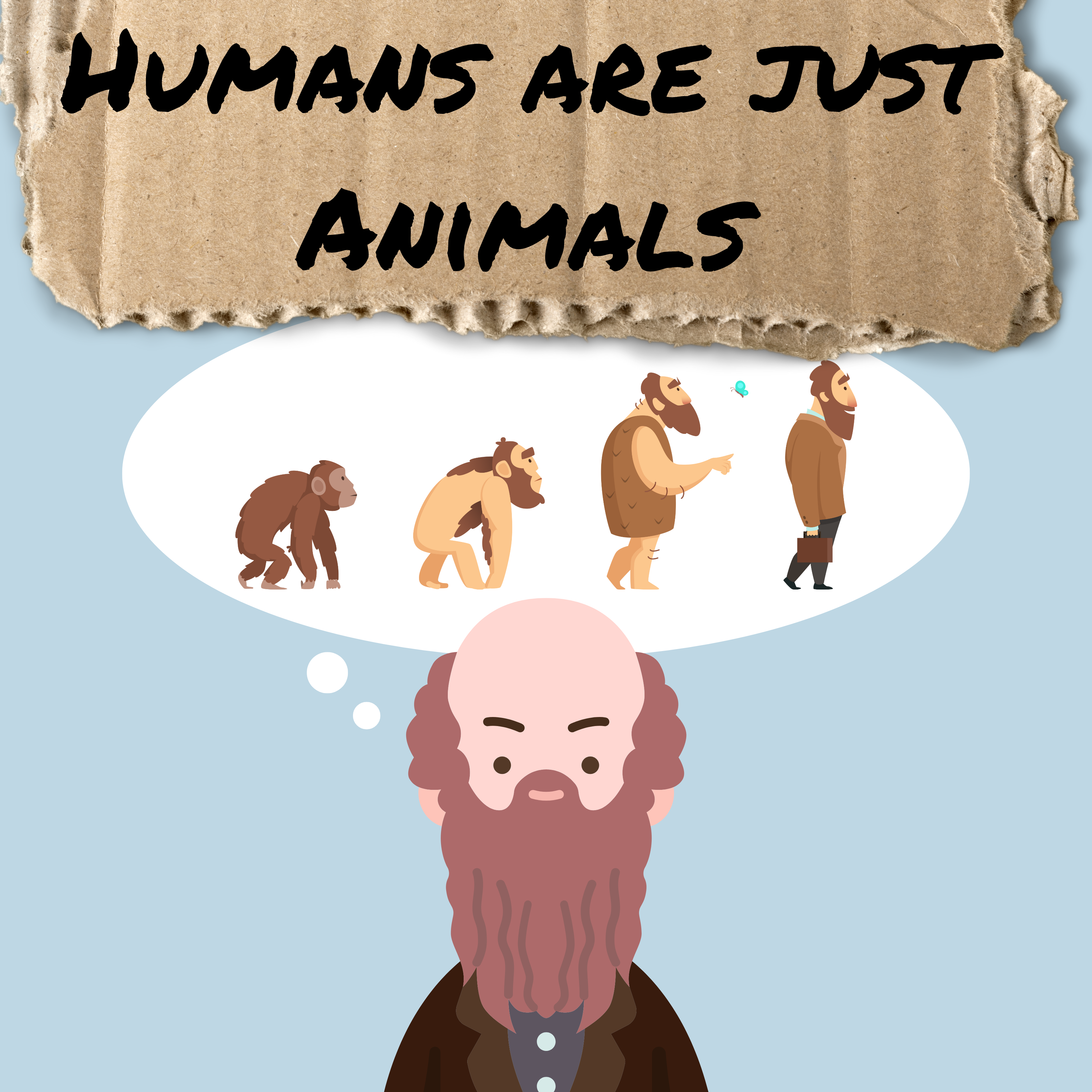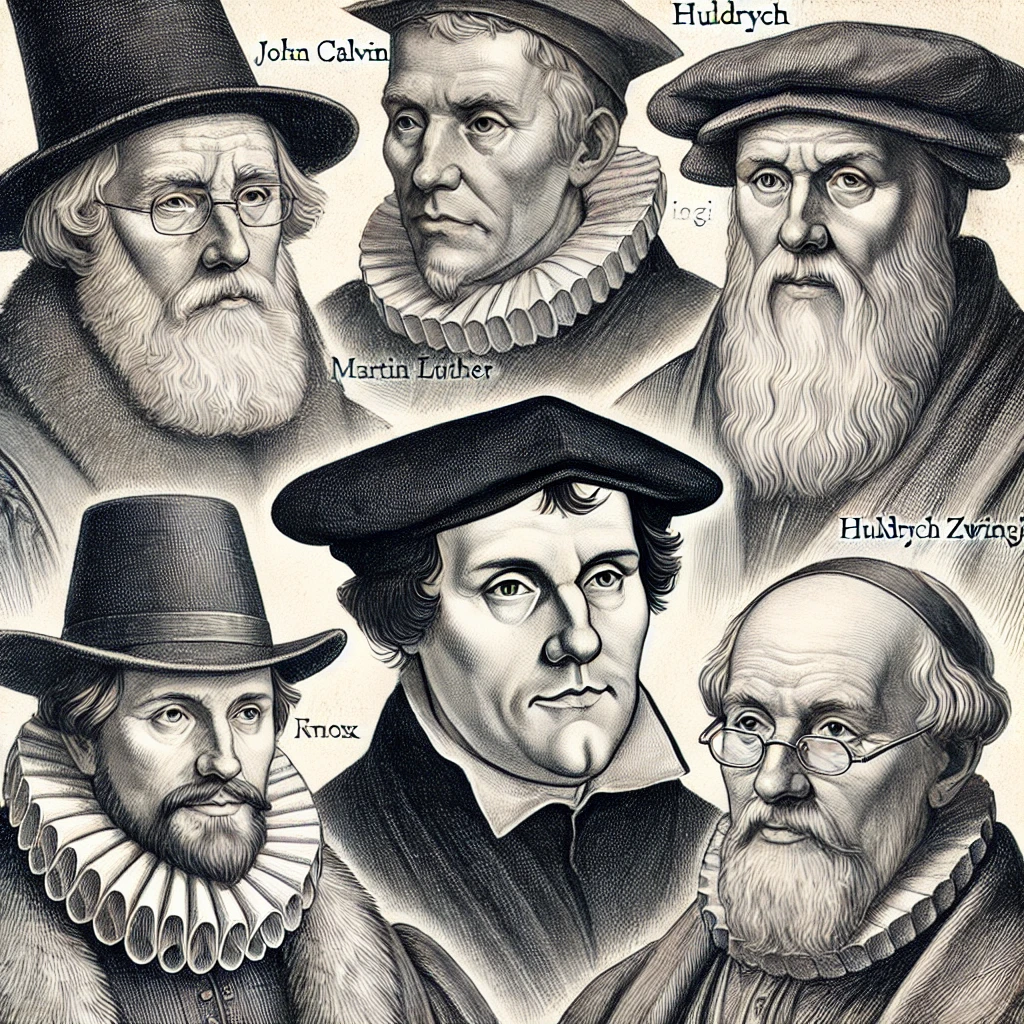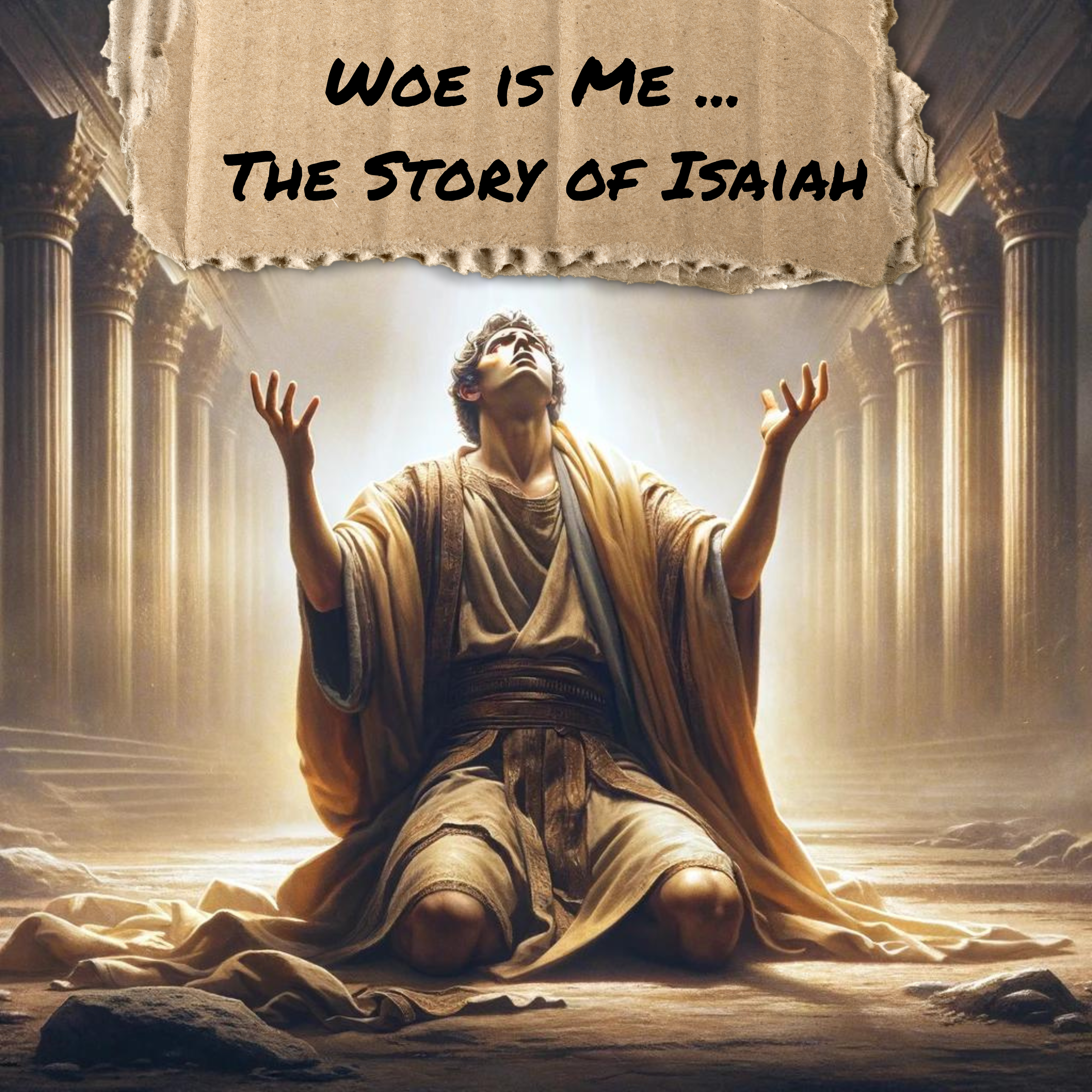
Introduction
The way we view human nature fundamentally shapes our worldviews, ethics, and societal structures. Atheism and Christianity offer contrasting perspectives on this matter. Atheists often see humans as highly evolved animals, products of natural evolution without intrinsic purpose or value beyond survival. In stark contrast, Christians believe humanity is uniquely created in the image of God, bearing inherent dignity and worth. This article explores these differing mindsets and argues that viewing humanity as mere animals can lead to devastating consequences, as evidenced by the atrocities committed by the Nazis during the Holocaust and the ongoing issue of abortion. In contrast, the Christian worldview offers a foundation for intrinsic human dignity and moral responsibility.
The Atheistic Perspective: Humans as Animals
From an atheistic viewpoint, human beings are seen as highly evolved animals. This perspective is rooted in naturalism, which posits that everything arises from natural properties and causes, and supernatural or spiritual explanations are excluded. Key tenets of this view include:
Evolutionary Origin
Humans are the result of a long process of evolution, with no intrinsic purpose or value beyond survival and reproduction. According to this perspective, the same natural processes that shaped other species also shaped humans. Consequently, humans are not fundamentally different from other animals; they are merely more complex and intelligent. This view, while promoting a scientific understanding of human origins, inherently denies any special status or purpose for humanity.
Materialism
Materialism is the belief that only physical matter exists, and everything, including consciousness, morality, and emotions, is a result of physical processes in the brain. In this framework, human experiences, thoughts, and feelings are nothing more than biochemical reactions. Materialism reduces human existence to mere physicality, stripping away any notion of a soul or spiritual dimension.
Relative Morality
Moral values are often viewed as social constructs, evolving to facilitate societal cohesion and personal well-being. Without an absolute moral standard, what is considered “right” or “wrong” can vary greatly between cultures and over time. In a purely atheistic framework, morality is subjective, and ethical norms are determined by societal consensus or individual preference rather than any transcendent source.
Consequences of an Atheistic Worldview
While the atheistic perspective can encourage a pragmatic approach to life, it lacks a basis for asserting the inherent worth of individuals. If we are merely animals, our value becomes relative and conditional, often leading to a dangerous hierarchy of worth. This devaluation of human life can have profound and catastrophic consequences.
The Holocaust: A Case Study in Dehumanization
The Holocaust stands as one of the most horrific examples of what can happen when human beings are viewed as mere animals. The Nazis’ dehumanizing ideology, rooted in pseudo-scientific beliefs about racial purity and hierarchy, justified the systematic extermination of six million Jews, along with millions of other marginalized groups.
Eugenics and Racial Purity
The Nazis embraced a pseudo-scientific belief in racial hierarchy and purity, which was heavily influenced by Darwinian evolution and the eugenics movement. Viewing humans as animals allowed for the categorization and elimination of those deemed “inferior.” The Nazis sought to create a “master race” by promoting the reproduction of those they considered genetically superior and eliminating those they deemed undesirable.
This ideology led to horrific practices such as forced sterilizations, euthanasia of the disabled, and ultimately, the genocide of entire ethnic groups. The belief in the expendability of certain humans, akin to culling animals, fueled this genocide. The dehumanization process began with propaganda that depicted Jews and other targeted groups as subhuman, which made it psychologically easier for ordinary people to participate in or tolerate their extermination.
The Holocaust
The dehumanizing ideology of the Nazis culminated in the Holocaust, where six million Jews, along with other marginalized groups, were systematically exterminated. The belief in the expendability of certain humans, akin to culling animals, fueled this genocide. The Nazis’ meticulous planning and execution of the Holocaust were rooted in their view that some lives were less valuable than others.
Loss of Moral Compass
By denying the inherent worth and dignity bestowed by the Imago Dei (the image of God), the Nazis lost any moral restraint, leading to unimaginable cruelty and inhumanity. Without a belief in a higher moral authority, the Nazi regime was able to justify its atrocities through a twisted form of utilitarianism, where the perceived greater good of the Aryan race outweighed the value of individual lives.
Abortion: The Modern Devaluation of Human Life
The issue of abortion presents another example of how viewing humanity as mere animals can lead to the devaluation of human life. In many parts of the world, abortion is legal and widely practiced, often justified by arguments rooted in personal autonomy and reproductive rights.
The Atheistic Justification for Abortion
From an atheistic perspective, the fetus is often viewed as a collection of cells or a potential human being rather than an actual person with rights. The decision to abort is seen as a personal choice, with the value of the fetus being contingent on the mother’s wishes. This perspective is heavily influenced by materialism, which denies the existence of a soul and reduces human life to its physical components.
The Dehumanizing Language of Abortion
The language used to discuss abortion often dehumanizes the fetus. Terms like “products of conception” or “tissue” are used to avoid acknowledging the humanity of the unborn child. This linguistic dehumanization makes it easier to justify abortion by distancing the act from the reality of ending a human life.
The Consequences of Abortion
The widespread acceptance of abortion has profound societal implications. It reinforces the idea that some lives are less valuable than others, depending on circumstances and personal choice. This devaluation of human life can contribute to a broader culture of disregard for the most vulnerable members of society, including the elderly, disabled, and marginalized.
The Christian Perspective: Humans as Image Bearers
Christianity offers a radically different view, rooted in the belief that humans are created in the image of God (Imago Dei). This perspective holds that:
Divine Creation
Humans are purposefully created by God, endowed with inherent dignity, worth, and a unique role in creation. According to the Bible, God created humans in His own image (Genesis 1:27), setting them apart from the rest of creation. This divine image bestows inherent value and purpose on every individual, regardless of their physical or mental condition.
Moral Responsibility
As bearers of God’s image, humans are called to reflect His character, which includes love, justice, and compassion. The moral teachings of Christianity are grounded in the nature of God, who is holy, just, and loving. This provides an absolute moral standard that transcends cultural and temporal variations. Christians are called to uphold the sanctity of life, protect the vulnerable, and act justly in all their dealings.
Redemption and Restoration
Though the image of God in humanity is marred by sin, it is restored through Jesus Christ, offering hope and transformation. The Christian message of redemption through Jesus Christ provides a path to forgiveness, healing, and renewal. Jesus’ sacrificial death and resurrection reconcile humanity with God, restoring the broken relationship caused by sin. This redemption is available to all, affirming the equal value and potential of every person.
The Imago Dei and Human Dignity
The belief that humans are made in the image of God provides a firm foundation for human dignity and equality. Each person, regardless of their status or abilities, is seen as valuable and worthy of respect. This belief forms the bedrock of universal human rights and equality. The intrinsic worth of individuals is not based on their utility or characteristics but on their divine creation and purpose.
Implications for Ethical Issues
The Christian perspective on human dignity has profound implications for ethical issues such as the Holocaust and abortion. It provides a robust framework for opposing dehumanizing ideologies and practices, advocating for the protection of all human life.
Opposing Dehumanization
The Christian belief in the Imago Dei opposes any ideology that devalues human life. It affirms the equal worth of all people and rejects any form of discrimination or violence based on race, ethnicity, disability, or any other characteristic. This belief motivates Christians to stand against injustice, advocate for the oppressed, and work towards a society that respects and protects the dignity of every individual.
Protecting the Unborn
The Christian perspective provides a strong argument for the protection of unborn children. If human life is inherently valuable from the moment of conception, then abortion is seen as the taking of an innocent life. This belief compels Christians to advocate for laws and policies that protect the unborn, support mothers in crisis pregnancies, and promote a culture of life.
The Consequences of Dehumanizing Ideologies
When humanity is viewed merely as an animal species, it can lead to dangerous ideologies and practices. The Nazi regime and the issue of abortion are stark examples of how dehumanizing views can justify atrocities and the devaluation of human life.
Eugenics and Racial Purity
The Nazis embraced a pseudo-scientific belief in racial hierarchy and purity. Viewing humans as animals allowed for the categorization and elimination of those deemed “inferior.” This ideology led to horrific practices such as forced sterilizations, euthanasia of the disabled, and ultimately, the genocide of entire ethnic groups. The belief in the expendability of certain humans, akin to culling animals, fueled this genocide.
The Holocaust
The dehumanizing ideology of the Nazis culminated in the Holocaust, where six million Jews, along with other marginalized groups, were systematically exterminated. The belief in the expendability of certain humans, akin to culling animals, fueled this genocide. The Nazis’ meticulous planning and execution of the Holocaust were rooted in their view that some lives were less valuable than others.
Abortion
The issue of abortion presents another example of how viewing humanity as mere animals can lead to the devaluation of human life.
In many parts of the world, abortion is legal and widely practiced, often justified by arguments rooted in personal autonomy and reproductive rights. The widespread acceptance of abortion has profound societal implications, reinforcing the idea that some lives are less valuable than others, depending on circumstances and personal choice.
Loss of Moral Compass
By denying the inherent worth and dignity bestowed by the Imago Dei, societies that adopt dehumanizing ideologies lose any moral restraint, leading to unimaginable cruelty and inhumanity. Without a belief in a higher moral authority, actions are justified based on utilitarian or subjective criteria, which can lead to the erosion of moral values and the perpetration of atrocities.
The Hope and Dignity in the Christian Worldview
In contrast, the Christian worldview offers a foundation for intrinsic human dignity and moral responsibility. This belief has profound implications:
Universal Value
Every person is valued because they are made in the image of God, irrespective of their abilities, ethnicity, or social status. This belief forms the bedrock of universal human rights and equality. The intrinsic worth of individuals is not based on their utility or characteristics but on their divine creation and purpose.
Moral Imperative
Christians are called to love and serve others, reflecting the character of God. This has inspired countless acts of compassion, justice, and advocacy for human rights throughout history. Figures like Mother Teresa, Martin Luther King Jr., and countless others were motivated by their Christian faith to fight for the dignity and rights of all people.
Redemption and Hope
The Christian message of redemption through Jesus Christ offers hope for healing and transformation, both individually and societally. It acknowledges the brokenness of humanity but provides a path to restoration and renewal through Christ. This redemption is available to all, affirming the equal value and potential of every person.
The Role of Christianity in Promoting Human Dignity
Christianity has played a significant role in promoting human dignity and opposing dehumanizing ideologies throughout history. The belief in the Imago Dei has motivated Christians to stand against injustice, advocate for the oppressed, and work towards a society that respects and protects the dignity of every individual.
Historical Examples of Christian Advocacy
The Abolition of Slavery
The Christian belief in the inherent worth of all people was a driving force behind the abolitionist movement. Figures like William Wilberforce in Britain and Harriet Tubman and Frederick Douglass in the United States were motivated by their faith to fight against the dehumanization of African slaves and work towards their emancipation.
Civil Rights Movement
The civil rights movement in the United States was heavily influenced by Christian leaders like Martin Luther King Jr. who advocated for the equal treatment of African Americans. Their faith in the Imago Dei provided a moral foundation for their activism and inspired others to join the fight for justice and equality.
Humanitarian Efforts
Christian organizations and individuals have been at the forefront of humanitarian efforts around the world. From providing aid to war-torn regions to fighting human trafficking and advocating for the rights of the unborn, Christians have been motivated by their faith to serve and protect the vulnerable.
The Continuing Challenge
Despite the significant contributions of Christianity to the promotion of human dignity, the challenge remains to oppose dehumanizing ideologies and practices in the modern world. Issues like abortion, euthanasia, and human trafficking continue to threaten the intrinsic worth of individuals, and Christians are called to stand against these injustices.
Conclusion
The divide between atheistic and Christian perspectives on human value is profound. Viewing humanity as mere animals can lead to devastating consequences, as tragically demonstrated by the Holocaust and the issue of abortion. In contrast, the Christian belief in humans as image bearers of God offers a powerful foundation for dignity, moral responsibility, and hope. Recognizing the intrinsic worth bestowed by the Imago Dei calls us to uphold and protect the value of every human life, reflecting the love and justice of our Creator.
Understanding and embracing the Christian worldview of human dignity compels us to oppose dehumanizing ideologies and practices and to work towards a society that respects and protects the worth of every individual. Through advocacy, education, compassionate action, and prayer, Christians can make a significant impact in promoting human dignity and fighting against injustice. The message of redemption through Jesus Christ offers hope for healing and transformation, both individually and societally, affirming the equal value and potential of every person.





